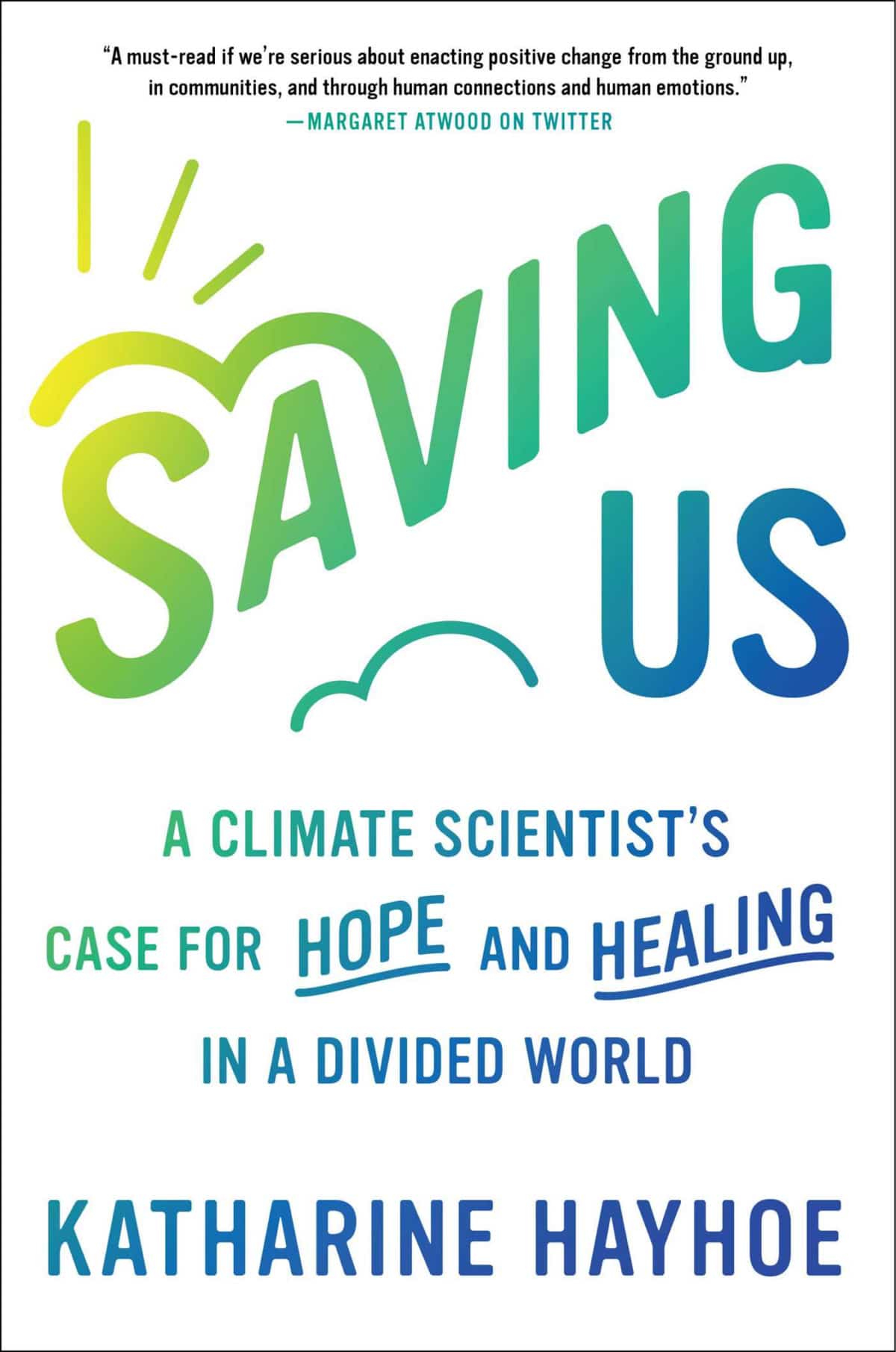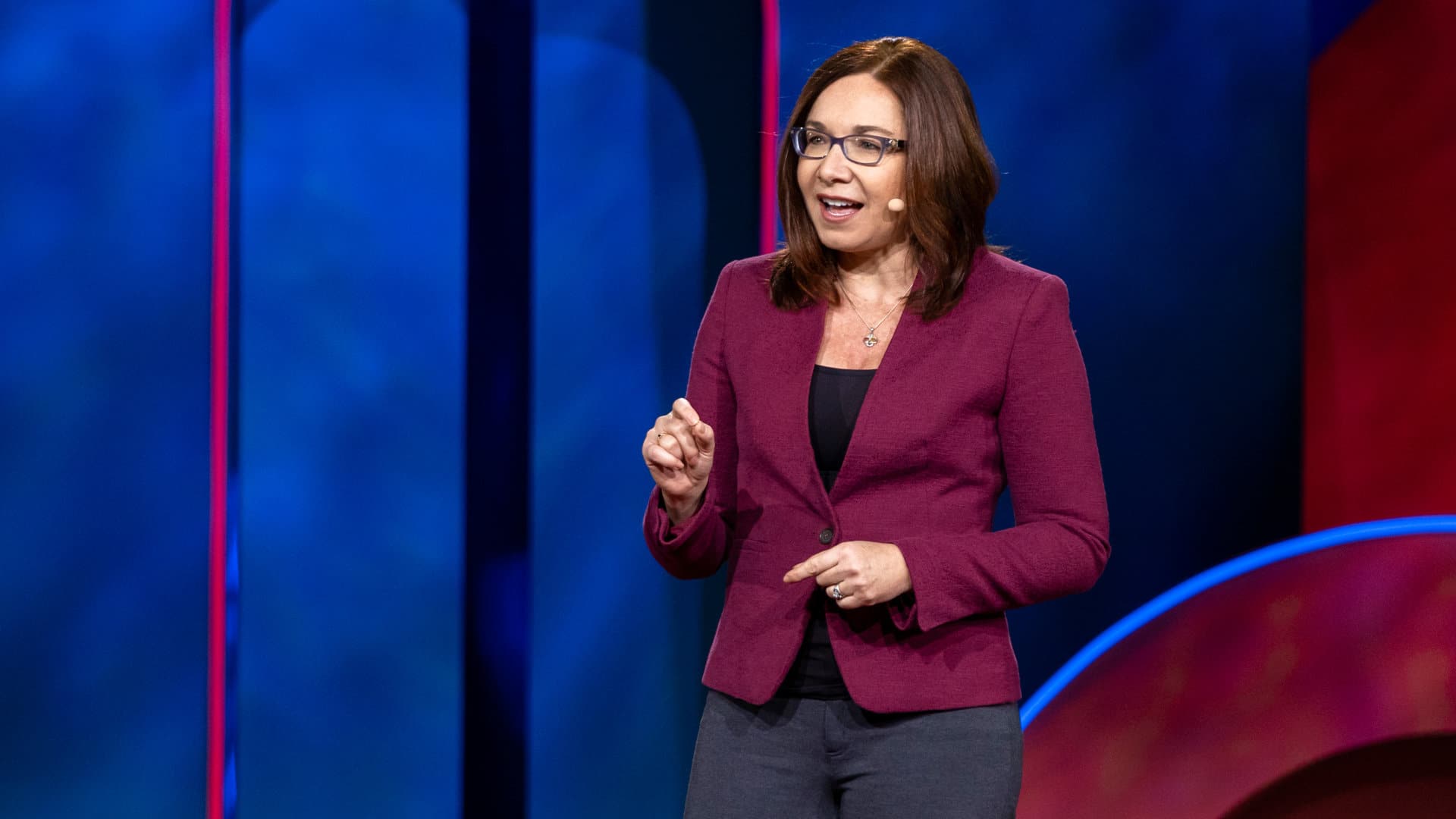Interview: Katharine Hayhoe on How to Talk About Climate Change
For many years, Katharine Hayhoe, a climate scientist at Texas Tech University and chief scientist for The Nature Conservancy, has been warning that our planet’s climate is changing, and speaking plainly about what needs to be done to slow and ultimately stop the human-caused warming trend.
Early in her career, however, her attention was focused elsewhere. “I was studying physics and astronomy at the University of Toronto,” she recalls. “I needed an extra class to finish my degree. And there was this new class that was being offered on climate change. And I thought, well, that looks interesting. Why not take it?”
The course changed her perspective in multiple ways. First, while she was aware of the perils of climate change even then — this was the mid-1990s — the course hammered home just how urgent the situation was. Second, she began to see just how unfair the harms caused by climate change were; how poor nations were suffering more than wealthy ones, for example. As an evangelical Christian, this troubled her deeply.

“Saving Us: A Climate Scientist’s Case for Hope and Healing in a Divided World,” by Katharine Hayhoe (Atria/One Signal Publishers, 320 pages).
Hayhoe’s new book, “Saving Us: A Climate Scientist’s Case for Hope and Healing in a Divided World,” contains plenty of science — but she is well aware that inundating people with facts is not enough. Rather, she emphasizes honest, one-on-one communication. (That message was also front and center in her TED Talk, “The Most Important Thing You Can Do to Fight Climate Change: Talk About It,” which has been viewed more than 4 million times.)
She admits that those conversations aren’t always easy. As she details in the book, we live in extraordinary polarized times, and some people, in spite of all the evidence to the contrary, believe that climate change isn’t a big deal, or even that it’s a hoax. According to a group of researchers at Yale University who track people’s attitudes toward global warming, about 8 percent of Americans fall into the “dismissive” category, believing that global warming isn’t happening, or isn’t human-caused, or isn’t a threat; many in this group endorse conspiracy theories, for example, claiming that global warming is a lie. Still, the vast majority are willing to listen, Hayhoe maintains, especially to those they are close to. And in spite of our differences, she is convinced there is much more that unites us.
This week, she’s attending the United Nations Climate Change Conference of the Parties (COP 26) currently underway in Glasgow, Scotland.
Our interview was conducted recently over Zoom and has been edited for length and clarity.
Undark: Scientists often emphasize that climate and weather are not synonyms. But as you point out in your book, the last few years have brought a string of unusually severe weather events, from hurricanes to heat waves to wildfires. Even The New York Times has described the past year’s weather as “unprecedented in modern times.” What can you say about the relationship between our planet’s unusual recent weather, and climate change?
Katharine Hayhoe: Ten years ago, if you interviewed a climate scientist and you said, “Could this current heat wave be attributed to climate change?” they would say: “Well, no single event can be attributed to the impacts of a changing climate. But we know that climate change is increasing the frequency and severity of heat waves.” Well, fast-forward to today, and we can put a number on it. We can see that crazy heat wave they’ve had out West. It’s at least 150 times more likely because of climate change. We can look at Hurricane Harvey, and we can say 40 percent of the rain that fell during Hurricane Harvey would not have occurred if it weren’t for climate change.
UD: How politically charged are conversations about climate change in the U.S.?
KH: When you survey people and you ask them about all kinds of different issues like immigration, gun control, abortion, racial justice, Covid, climate change — climate change is at the top of the most politically polarized issues in the whole U.S. And it’s been that way since the Obama administration. The number one predictor of whether you agree with simple scientific facts we’ve known since the 1800s is not how smart you are, how educated you are, or how much science, you know — it is simply where you fall on the political spectrum.
UD: How did it become so political?
KH: Nobody wakes up in the morning and decides, “I’m going to reject 200 years of physics, the same physics that explains how airplanes fly and how stoves heat food.” What do people do? They wake up in the morning and they pick up their phone and they scroll through the social media feeds of people in their “tribe.” They listen to news programs of people who they agree with. They read blogs and listen to podcasts of people whose values they share, whose opinions they respect, and who they agree with.
So we are all “cognitive misers.” We don’t have the time to dig into every issue. So what we do is, we go to people whose values we share on issues that are near and dear to our hearts, and we say, “Well, I don’t really understand this other issue, but they say it’s not real, so it must not be real.”
UD: And yet, the people who actually deny the reality of climate change — in your book you call them the “dismissives” — make up only a small minority, right?
KH: Yeah. They are a tiny fraction of the population, yet they are very loud. They get a lot of air time. They’re in the comments section of every newspaper. They’re on Twitter every single day. And so we overestimate their numbers and their reach.
UD: So they’re a minority, and as you say in the book, they might be impossible to reach anyway. So who should we be reaching out to, to have conversations with?
KH: The most important people for each of us to speak with are people who we have something in common with. So it could be that we both live in the same place, or we’re both on the same Ultimate Frisbee team, or we both play hockey, or we both love birding or kayaking, or we both have kids that go to the same school, or we both go to the same type of church, or we don’t go to the same type of church. Whoever we have something in common with, that is the best place to start the conversation. Start, from the heart, with something we share.
And in the book, I talk about how I’ve started conversations about knitting and cooking. And I have stories about Renée, who’s a ski racer — she talks about skiing. And Don who works in a hospital — he talks about the pension fund that they all pay into. So have a conversation that starts with something that you have in common, then connect the dots to how climate change affects that, and to a solution that is consistent with your values, your priorities, and that issue that you both care about.
UD: It’s clear from your book that your Christian faith is important to you. How does your faith affect your approach to doing climate science?
KH: What really changed my life, and my perspective, was when I realized that climate change is profoundly unfair. It disproportionately affects the poorest and most marginalized people — the very people who’ve done the least to contribute to the problem. The statistics from Oxfam today are that the [3.1 billion] poorest people produce 7 percent of emissions, yet they are bearing the brunt of the impact. And that is absolutely not fair.
And so for me, my priorities, my values, are informed by my faith. And one of the core tenets of my faith is to love others and to care for others — and how loving or caring is it to just close our eyes and our ears to the suffering that rich countries are inflicting on those who don’t have the voice?
UD: What do you hope will come out of the U.N. climate summit in Scotland?
KH: Well, two things. First of all, we don’t have enough actions, policies, pledges, plans — enough independently determined national contributions. We don’t have enough on the table yet to meet the Paris goals. Countries have only promised to do enough to get us to a 66 percent chance of holding temperatures below 2.7 degrees [Celsius above pre-industrial levels] — and, of course, the Paris goal is 2 to 1.5.
So we need every country to step up and bring their proportional mitigation contribution to the table in terms of how they’re cutting their carbon emissions, consistent with their contribution to historical emissions.
But there’s a second half of the Paris agreement that we don’t often talk about in the United States and Canada and wealthy countries, and that’s the Green Climate Fund, the fact that, again, the poorest people in the world have contributed 7 percent of emissions, yet they’re bearing the brunt of the impacts. And so in Paris, all of the high-income, high-emitting countries promised to contribute to this fund, to help low income countries develop, mitigate their emissions, and adapt or prepare for the impact of climate change.
And there was just a stunning summary that came out in Nature. According to this, the U.S. has only given 20 percent of their fair contribution. Canada is at about 40 percent. Norway is the only country that’s given 100 percent [in grants alone]. So I would like to see those contributions. Because, again, climate change is not fair. It’s already increased the gap between the richest and poorest countries by 25 percent. We have literally benefited off the suffering of the low-income countries.










